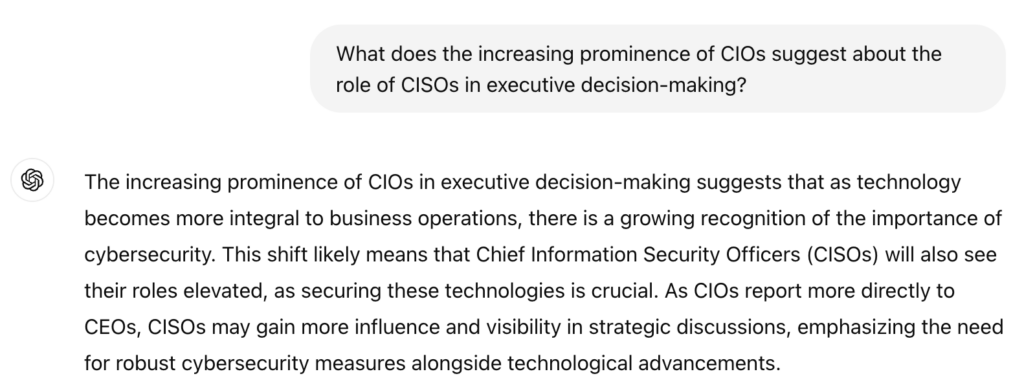Welcome to the newest edition of FindBiometrics’ AI update. Here’s the latest big news on the shifting landscape of AI and identity technology:

OpenAI’s annualized revenue has more than doubled over the past six months, reaching $3.4 billion, according to CEO Sam Altman. The explosive growth suggests that organizations and individual users continue to flock to the company’s AI services—and that Microsoft’s $13 billion investment wasn’t as crazy as it might have first appeared.
Mistral AI has raised €600 million in a new funding round that values the company at nearly €6 billion. The Paris-based OpenAI rival is less than a year old, and also backed by Microsoft. CEO Arthur Mensch says the firm has “effectively disrupted the OpenAI business model.”
Apple has officially partnered with OpenAI, announcing plans to integrate the latter’s ChatGPT into its Siri AI assistant and certain writing tools. The most interesting thing about the partnership may be that no money has changed hands: According to Bloomberg’s Mark Gurman, OpenAI is satisfied with the opportunity to have its tech reach hundreds of millions of new users through Apple devices.
OpenAI has massively bulked up its lobbying team, with its global affairs staff growing from three people at the start of last year to 35 now. A target of 50 has been set for the end of this year. This means OpenAI has been intensifying its efforts to influence political actors and regulators even as its AI safety researchers have departed en masse.
The rise of AI is pushing more CIOs to the upper ranks of corporate decision-making, according to a Wall Street Journal report. About 63 percent of US-based CIOs say they report directly to their CEO, up from 52 percent in 2023 and 41 percent in 2015.
Deloitte says that generative AI could push fraud losses to $40 billion in the United States by 2027, up from $12.3 billion in 2023. That’s a compound annual growth rate of 32 percent, with the consultancy asserting that the tech industry is falling behind in developing tools to detect deepfakes.
AuthenticID has launched a new system designed to detect deepfakes and generative AI injection attacks. Developed by the firm’s Product and Applied Research team, the system looks for visual signals while also applying “text fraud algorithms” and “behavioral algorithms” to scan for additional fraud signals.
The chatbot’s take: With CIOs commanding more influence, CISOs probably are, too.

–
June 13, 2024 – by Alex Perala








Follow Us